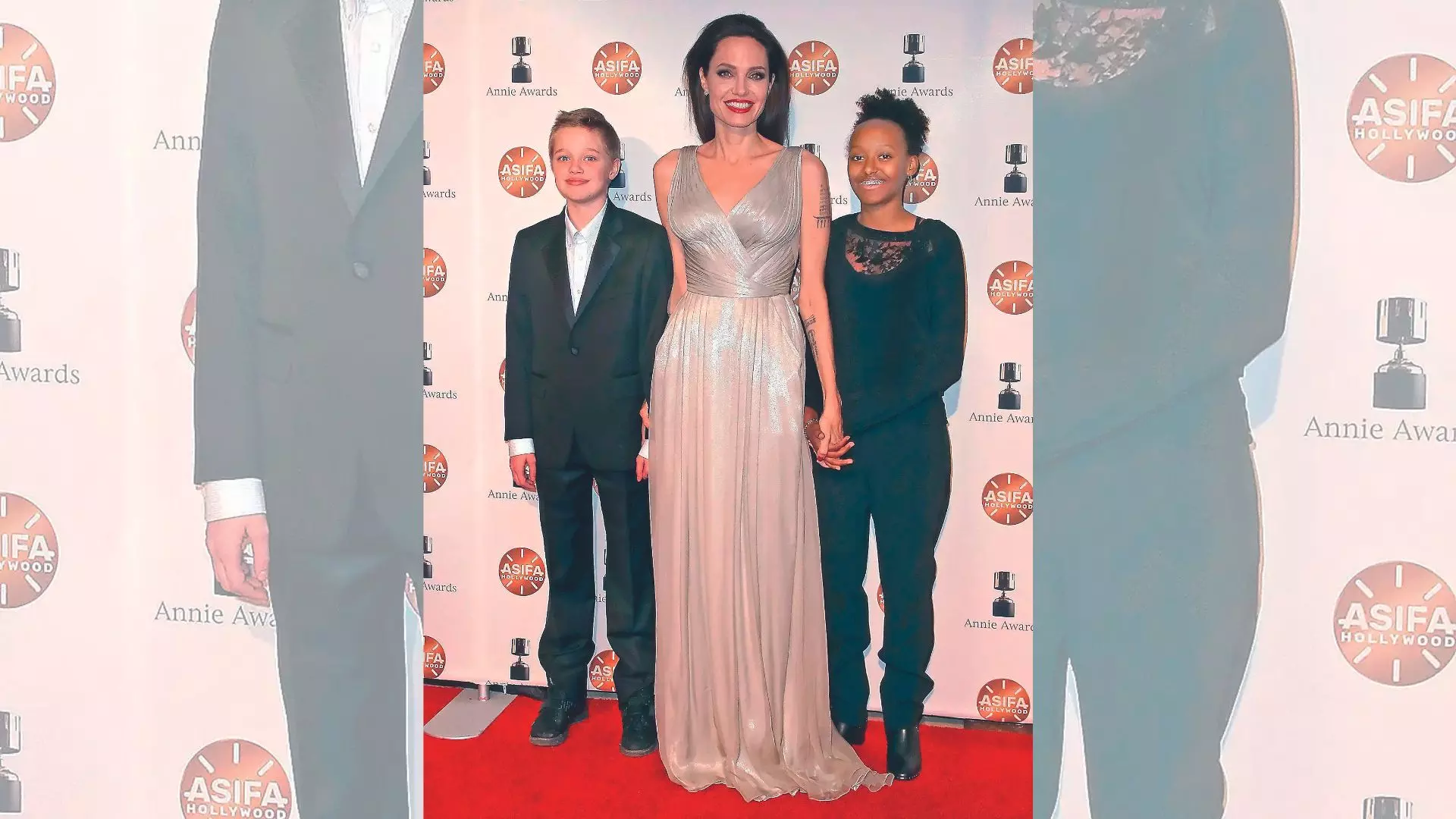What’s in a surname?
The tradition of sorts, wherein kids continue with their father’s surname even though parents have separated, seems to be a thing of the past. The mother’s surname is what matters now

What’s in a surname? Did it really matter if Shiloh or Zahara Marley Jolie, daughters of Hollywood stars Angelina and Brad Pitt, dropped ‘Pitt’ from their name and became known as Shiloh Jolie and Zahara Marley Jolie following the separation of their parents? Or did it matter if Suri, daughter of Tom Cruise and Katie Holmes, signified her break from her famous father by dropping ‘Cruise’ from her name?
Even Vivian Jenna Wilson (formerly Xavier Alexander Musk), Elon Musk’s 18-year-old transgender daughter changed their name to Vivian Jenna Wilson. They dropped the ‘Musk’ moniker in favour of their mom’s maiden name. While most women choose to drop their partner’s surname in the event of a breakup or divorce, children are increasingly choosing to drop their father’s last name once their parents separate. It’s the mother’s surname that holds weight. The girls are showing the way. Does dropping your father’s last name bring any emotional relief?
Coping mechanism
Parental separation is a huge life event for any child, mostly leading to a range of emotional responses, which include sadness, confusion, and distress, says Shivani Misri Sadhoo, psychologist and marriage counsellor.
For the children of high-profile individuals, these emotions could be multiplied by public scrutiny and media attention. “Choosing to change a surname could serve as a coping mechanism, allowing the child to regain control over their identity and distance themselves from the public scrutiny of their parent’s conflict,” she explains.
Brad Pitt and Tom Cruise are not only renowned actors; they are also fathers who have experienced the strain and burden of high-profile separations from their partners. “Identity and autonomy for kids, especially teenagers, play a crucial role in their identity formation during the period following a parental separation.” Changing a surname could symbolise a break from a painful past and a step towards forming their own identity.”
Shivani interprets Pitt’s daughters’ move as an attempt to forge a personal identity apart from their father’s celebrity status and associated issues. “Similarly, Suri Cruise’s decision to stop using her father’s surname may reflect a desire to distance herself from the tumultuous proponents of her parents’ relationship and her father’s controversial public image,” she says.
Emotional relief
Deleting a father’s surname could also provide emotional relief by decreasing constant reminders of familial discord.
Every time a child hears or sees their surname, it serves as a virtual reminder of their relationship with their father and the circumstances surrounding their parents’ separation. “Children may find it easier to move through social situations and reduce the emotional stress associated with their family name by changing their surname.”
Personal agency
Moreover, the act of deleting a surname is an assertion of personal agency. “It lets children make a significant decision about their own identity, which could also be empowering, specifically when they might feel powerless in other aspects of their lives because of their parent’s separation,” says Shivani.
She feels that this sense of control could be particularly beneficial for their mental health, giving them a semblance of stability and self-determination.
Social and legal considerations
However, it is essential to consider the social and legal implications of such a decision.
“Legally, changing a surname needs parental consent and could be a lengthy process. Shivani notes that socially, changing a surname may elicit mixed reactions from peers, extended family, and the public, especially in cases involving celebrities.” She emphasises the importance of carefully weighing these factors to ensure that the decision truly enhances the child’s well-being, rather than complicating their social interactions and legal standing.
How to cope
Family therapy, open communication, and a helpful environment are crucial in helping children cope with the emotional fallout of their parents’ separation. “While changing a surname could be part of the healing process, it must be accompanied by efforts to address deeper emotional requirements and ensure the child’s overall well-being,” says Shivani.
While deleting a father’s surname may help some children overcome sadness and emotional distress after their parents' separation, it is not a universal solution.
Address the emotional state
According to ontologist, mental health, and relationship expert Aashmeen Munjaal, every individual has a unique way to respond to their parents’ separation. “Removing a father’s surname may result in a change in family dynamics, but that doesn’t guarantee to help children overcome sadness and emotional distress,” she says.
Instead, parents should carefully address the emotional state of their children during the entire phase of separation. “It becomes crucial to ensure the children that even after separation, their love and affection will remain intact, and they will always provide emotional stability and support,” says Aashmeen.
Additionally, one should encourage children to express their feelings, emotions, and thoughts about their parents’ separation. “This will help parents understand their children’s mental and emotional state. Never let the children bear the consequences of separation,” she advises, adding that each one has a different coping mechanism that will allow them to make decisions.
Never let your child carry the baggage of emotional distress and sadness because it can have a negative impact on their mental health.” — Aashmeen Munjaal, relationship expert
The decision (to stop the father’s surname) is deeply personal and could provide a sense of autonomy and emotional relief for some children. However, it is important to address the broader emotional challenges they face through comprehensive support systems, including family therapy and open communication.” — Shivani Misri Sadhoo, psychologist and marriage Counsellor
